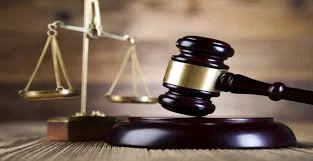A National University of Science and Technology (NUST) student was arraigned before the Bulawayo Magistrates Court for allegedly posting a provocative tribal comment on his X page demeaning Ndebele people.
According to the -, the accused, Tanaka Ryan Ziso (24), resides at the Old Mutual students’ accommodation complex in Selbourne Park and is a final-year Civil and Water Engineering student.
He appeared in court on Thursday to answer for charges of causing offence to persons of a particular race.
Ziso was remanded in custody to 2 April when he appeared before Bulawayo magistrate Maxwell Ncube.
Prosecuting, Dorcas Maphosa said Ziso committed the offence on 13 March this year. She said:
On 13 March 2024 at 2011 hours the accused person posted a message on his X-page (previously Twitter) using the name The Royal Priest of Chitungwiza @ iamryantanaka.
In the post, Ziso allegedly expressed demeaning sentiments against the Ndebele people, using unprintable words.
On 14 March 2024, the accused at around 2 PM posted another message heightening the already boiling tensions.
Maphosa said the matter was reported by the director of communication and marketing at NUST, Thabani Mpofu. She said:
Printed hard copies of the contents of the accused person’s posts can be produced in court as evidence.
The accused person had no right to post sentiments that can cause offence to persons of a particular race, tribe and place of origin.
In Zimbabwe, causing offense to persons of a particular race, religion, etc. is addressed under the Criminal Law (Codification and Reform) Act. Specifically, Section 42 of the act deals with this offence.
It prohibits actions that intentionally cause offense to individuals based on their race, religion, or other protected characteristics. The section reads as follows:
42. Causing offence to persons of a particular race, religion, etc.
(1) In this section-
“creed or religion” means any system of beliefs associated with practices of worship that is adhered to by any significant body of persons in Zimbabwe or any other country;
“film”, “picture”, “publication”, “record” and “statue” have the meanings assigned to those terms by section 2 of the Censorship and Entertainments Control Act [Chapter 10:04]; “publicly”, in relation to making a statement, means—
(a) making the statement in a public place or any place to which the public or any section of the public have access;
(b) publishing it in any printed or electronic medium for reception by the public;
“statement” includes any act, gesture or form of expression, whether verbal, written or visual, but does not include any film, picture, publication, statue or record that is of a bona fide literary or artistic character.
(2) Any person who publicly makes any insulting or otherwise grossly provocative statement that causes offence to persons of a particular race, tribe, place of origin, colour, creed or religion, intending to cause such offence or realising there is a real risk or possibility of doing so, shall be guilty of causing offence to persons of a particular race, tribe, place of origin, colour, creed or religion, as the case may be, and liable to a fine not exceeding level six or imprisonment for a period not exceeding one year or both.
SOURCE : THE CHRONICLE










